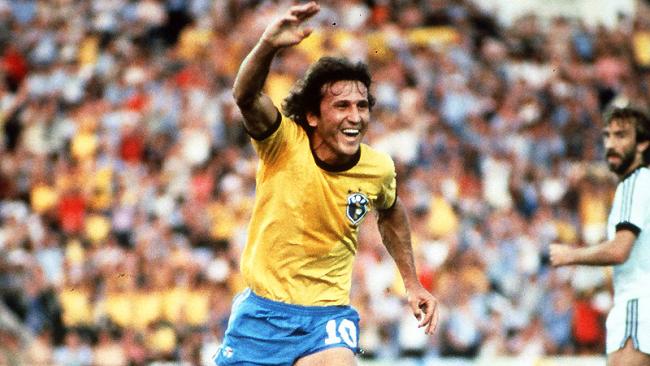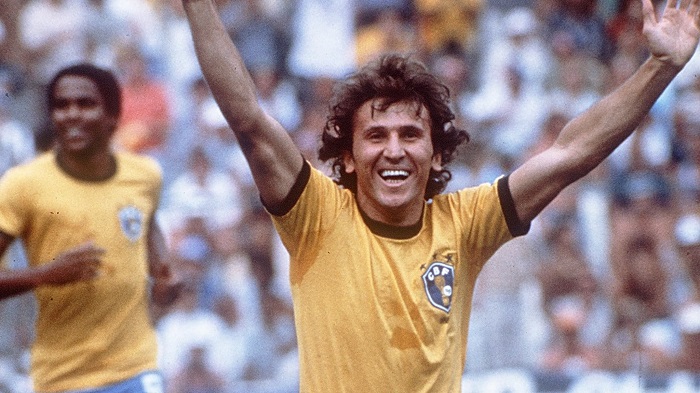In the history of Brazilian soccer, the great players are consecrated by winning a World Cup, it is an essential requirement to be considered a legend. However, this player did not have the opportunity to win a World Cup with Canarinha, but he is still considered one of the greatest talents in the history of his country. If you want to know more about him, be sure to read this summary of Zico’s net worth, biography (March 3, 1953, Rio de Janeiro, Brazil).
Early years at Flamengo
Arthur Coimbra was the name by which his parents baptized him, but in his neighborhood, he was known as Zico. The first blows he gave to the ball were on a futsal court, and after a match in which he scored 10 goals, a pair of Flamengo scouts from the Brazilian League asked the father to incorporate the young promise to the lower categories of the club.

Zico has always been considered a phenomenon by the technicians of Flamengo, and in 1971, at the age of 18, he made his debut in a match in which he gave the assist for the winning goal. The following season he alternated between youth and the first team, with good performances that helped him obtain the domestic championship in 1972. However, Zico would remain on the amateur team for two more seasons.
In 1974 he received number 10, a very representative number in all Brazilian soccer clubs. That season stands out with scandalous performances against teams like Santos, Corinthians or São Paulo. Zico was a player never seen before in the history of the sport, a playmaker with a lot of goals, but above all with a superior command of the tactical concepts of the game.
After 4 seasons, he achieved three domestic titles with Flamengo, which marked the beginning of the club’s first golden age. The playmaker’s performances earned him to be called up with Brazil for the 1978 World Cup in Argentina. The canarinha lost, but Zico left good impressions that would be worth it to become a benchmark for the team.
Zico net worth
The footballer’s annual salary is under review. In 2018, Zico net worth was 1 lac USD to 1 million USD which increased to 5 million USD in 2019. He is a professional rapper and it is his primary income source.
The ’80s were golden for Flamengo. In 1980 he obtained a Brasileirao again and managed to qualify for the 1981 Copa Libertadores, which they would win with a stellar performance by Zico. In addition, his team won the Intercontinental Cup against Liverpool with a favorable result of 3-0. Thanks to this, he was summoned to the 1982 World Cup with a Brazilian team in which he was the top star.
The performance of the Zico team in the ’82 World Cup elevated the player to the Olympus of soccer. The way in which that team played the ball was unique, being considered “the last real expression of the beautiful game”, with authentic exhibitions in the middle of the tournament. However, they would be eliminated by Italy, which with a more defensive game would completely nullify Brazilian magic, with Zico as the negative protagonist after missing a penalty.
However, that year he obtained all the recognitions, being the first South American to win the World Soccer Award for Best Player of the Year. In addition, he has included in the Ideal Once of the World Cup and the entire soccer community recognized him as one of the best in history.
Final years of his soccer career
In 1983 he decided to try his luck in Europe and signed for Udinese in Serie A. Although he had two good seasons, with meritorious performances against the great teams of the Italian championship, Udinese did not obtain any important title, so in 1985 he returned to Flamengo.
In his return season to Flamengo, he was injured in a league game after receiving a knee entry, which left him out of the field for almost a year, and he even had to undergo surgery up to three times. He manages to recover to go to the 1986 World Cup, but he does not perform well.
He continued until 1991 at Flamengo, getting another Brasileirao before leaving for Japan where he would finish his career as an elite footballer. Years later he joined the Brazilian Beach Soccer Team and would even try his luck as a coach, leading the Japan National Team in the 2002 World Cup, and winning an Asian Cup with them in 2004.
